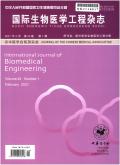Assessing Delay in Receiving Adequate and Appropriate Treatment: A Client Perspective among Women Admitted to Emergency Obstetric Hospitals of Ethiopia
引用次数: 0
Abstract
Background: In Ethiopia, the maternal death is still unacceptably high, but instead of women dying in their 'hovels', they die in hospitals. For improving quality of medical care in obstetric emergencies, appropriate timing is extremely important and key to reduce maternal mortality. The aim of the study was to assess delay in receiving adequate and appropriate treatment for women faced emergency obstetric complications admitted to emergency room on five referral hospitals of Ethiopia. Methods: Facility based Cross-sectional study was conducted on five referral hospitals of Ethiopia. Mixed of health facilities (university and non-university hospitals) that provide specialized obstetric care and perform a minimum number of 1,000 deliveries per year was considered. Women faced obstetric complications and fulfill world Health Organizations Criteria for potential life-threatening conditions was included in the study. A total of 360 study subjects were sampled. Samples was proportionally allocated to each facilities based on their clients flow and systematic random sampling technique was used to select study subjects. Data was collected using exist interview and from maternal cards. Data was analyzed using SPSS software. Multivariable analysis was conducted using logistic regression; variables with the largest p-value of 0.2 in bivariable analysis were included. Result: The mean age of the respondent was 30 year with standard deviation of (SD , ± 6). Out of the total sampled, 60% of them faced obstetric complications at home. Even though, the time of getting appropriate treatment for a women faced obstetric complications vary from complication to complication they faced, but the median time were 1.10 hours. About 49 percent of women faced obstetric complications were delayed to get appropriate treatment which was above the median time. Of which, one in six women were delayed to received appropriate treatment because of training issues. women who got information about emergency obstetric complications were two times more likely to reduce delay in receiving appropriate treatment than women who did not get the information (AOR: 2.09, 95% CI, 1.0-4.36). Conclusion : About 49 percent of women were delayed in receiving appropriate treatment, and women who were got information about emergency obstetric complications were got appropriate treatment on time. Therefore referral hospitals of Ethiopia, are recommended to check there liaison system and emergency medical management protocols. Keywords : Emergency obstetric care, Multivariable analysis, SPSS software, Third delay评估接受充分和适当治疗的延误:埃塞俄比亚产科急诊医院收治妇女的客户观点
背景:在埃塞俄比亚,产妇死亡率仍然高得令人无法接受,但妇女不是死在"茅舍"里,而是死在医院里。为了提高产科急诊的医疗质量,适当的时机是极其重要的,也是降低孕产妇死亡率的关键。这项研究的目的是评估埃塞俄比亚五家转诊医院急诊室收治的急诊产科并发症妇女在接受充分和适当治疗方面的延误情况。方法:对埃塞俄比亚5家转诊医院进行基于设施的横断面研究。考虑了提供专门产科护理和每年至少接生1 000次的混合保健设施(大学和非大学医院)。面临产科并发症并符合世界卫生组织潜在威胁生命条件标准的妇女被纳入研究。共有360名研究对象被抽样。根据各机构的客流量按比例分配样本,采用系统随机抽样技术选择研究对象。数据收集采用现有的访谈和从产妇卡。数据分析采用SPSS软件。采用logistic回归进行多变量分析;纳入双变量分析中p值最大为0.2的变量。结果:调查对象的平均年龄为30岁,标准差为(SD,±6),其中60%的人在家中出现产科并发症。尽管面临产科并发症的妇女获得适当治疗的时间因并发症而异,但平均时间为1.10小时。大约49%面临产科并发症的妇女被推迟接受适当的治疗,这超过了中位数时间。其中,六分之一的妇女由于培训问题而未能得到适当的治疗。获得产科急诊并发症信息的妇女比未获得信息的妇女减少接受适当治疗延误的可能性高两倍(AOR: 2.09, 95% CI, 1.0-4.36)。结论:约49%的妇女延误了适当的治疗,获得产科急诊并发症信息的妇女及时得到了适当的治疗。因此,建议埃塞俄比亚的转诊医院检查其联络系统和紧急医疗管理协议。关键词:产科急诊,多变量分析,SPSS软件,第三次延迟
本文章由计算机程序翻译,如有差异,请以英文原文为准。
求助全文
约1分钟内获得全文
求助全文

 求助内容:
求助内容: 应助结果提醒方式:
应助结果提醒方式:


